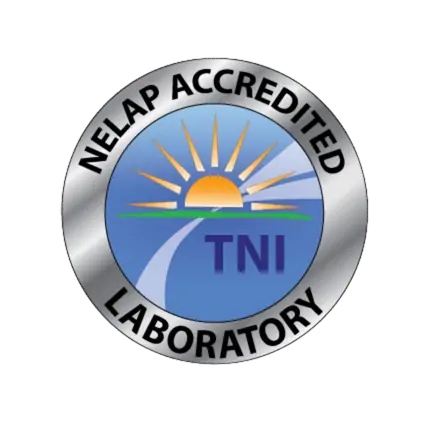Teklab Certifications
The NELAC Institute Standards

TNI standards are integrated documents containing literature from relevant ISO standards, which are redefined and communally developed by TNI expert committees to provide oversight for regulatory entities.
ISN® Member Contractor

ISNetworld collects and reviews health, safety, quality, insurance, training, cybersecurity and ESG information for contractors and suppliers in ISNetworld. The platform allows contractors and suppliers to complete qualification requirements for multiple Hiring Clients at once.
Member of PIC/S

Leading the international development, implementation and maintenance of harmonized GMP standards and quality systems of Inspectorates in the field of medicinal products. Teklab is a proud member and participant of PICS.
State Certifications
Select a state from the list below to view the certificate (PDF).
Arkansas DEQ
Illinois NELAP IEPA
Illinois NELAP (PFAS)
IDPH Drinking Water Micro
Iowa Dept. Natural Resources
Kansas NELAP
Kansas NELAP PFAS
Kansas Field pH/TRC
Kentucky PFAS
Kentucky UST
Kentucky Wastewater
Louisiana NELAP (TO-13/TO-10)
Louisiana NELAP (TO-15)
Mississippi PFAS – Drinking Water
Missouri DNR Drinking Water
Missouri DNR DW-Micro
Oklahoma TNI
Arkansas Accreditation
Laboratory ID: 88-00966
Arkansas Department of Environmental Quality
Iowa Accreditation
Lab #430
Illinois Accreditation
IL NELAP Accreditation #100226
Drinking Water / Wastewater / Hazardous Waste Analysis
Illinois Environmental Protection Agency
IL NELAP (PFAS) Accreditation # IL100465
IL Dept. Public Health ID #17584
Kansas Accreditation
KS NELAP Accreditation ID: E-10734
KS NELAP PFAS Certificate ID: E-10438
KS Department of Environmental Quality
Kentucky Accreditation
KY UST Accreditation #0073
Kentucky Underground Storage Tank Program
KY Wastewater Accreditation# KY98006
Louisiana Accreditation
LA NELAP Accredited
AI 166493 (Collinsville TO13_Mod/TO10 Mod)
AI 166578 (Collinsville Air Lab TO15)
Louisiana DEQ
Missouri DNR
ID #00930
Mississippi Accreditation
PFAS (Drinking Water) Certification
Oklahoma Accreditation
OK NELAP Certification ID #9978
Oklahoma Department of Environmental Quality
Performance Evaluation Program
EPA Lab ID #IL00054
Water Supply (WS) / Water Pollutants (WP) / RCRA (SOIL) /Air (AE)

Environmental Stewardship
Teklab is a proud member of many scientific societies and associations:
American Chemical Society
Air & Waste Management Association
Association of Environmental/Engineering Geologists
Gateway Society of Hazardous Material Management
Illinois Association of Environmental Professionals
Southern Illinois Environmental Managers Association
Southern Illinois Water Operators Association
MISKA Valley Water Pollution Control Association
Many states do not certify for RCRA, UST, and Wastewater
Think of it like getting your car repaired. The mechanic working on your brakes might need a specific state certification to be qualified to do that work. However, the lab that tests the quality of the brake fluid the mechanic uses might not need a state certification specific to “brake fluid testing.” As long as the lab follows proper testing procedures and quality control, the results are still valid for determining if the brake fluid meets the required standards.
Therefore, while certain activities related to RCRA, UST, and wastewater management often require state certification, the testing performed to assess these areas can be valid if conducted by a competent laboratory following recognized standards and methods, even if the state doesn’t have a specific certification program for that exact type of testing.
More Information
It’s crucial to always verify the specific requirements of the relevant state and regulatory agency to ensure that both the testing and any associated activities meet all applicable regulations.
1. Regulations Focus on Specific Activities and Roles:
Certification often targets operators and those directly responsible for regulated activities. For example, wastewater treatment plant operators might need state certification to oversee the treatment process and ensure compliance with discharge permits. Similarly, individuals who install or remove underground storage tanks (USTs) may require specific certifications.
Testing, on the other hand, is a technical service. While the results of the testing are crucial for demonstrating compliance with RCRA (Resource Conservation and Recovery Act), UST, and wastewater regulations, the act of performing the test itself might not always require a specific state-issued certification for the testing laboratory or personnel.
2. Validity of Testing Relies on Quality Standards, Not Always State Certification:
Accreditation vs. Certification: The validity and reliability of environmental testing often depend on adherence to recognized quality standards and protocols. Laboratories frequently seek accreditation from independent bodies (like The NELAC Institute – TNI) that assess their competence in performing specific tests. This accreditation demonstrates technical proficiency and data defensibility.
Standardized Methods: Environmental testing typically follows standardized methods (e.g., EPA-approved methods). As long as a laboratory adheres to these scientifically sound procedures, the results can be considered valid for regulatory purposes, even without a specific state certification for that particular testing category.
Data Quality Objectives: Regulatory agencies are primarily concerned with the quality and reliability of the data used for compliance decisions. If a lab can demonstrate that its testing procedures meet the required data quality objectives, the lack of a specific state certification for RCRA, UST, or wastewater testing might not automatically invalidate the results.
3. State Regulations Vary:
Not all states have comprehensive certification programs for all aspects of environmental work. Some states might focus their certification efforts on operational roles (like UST installers or wastewater operators) and rely on the quality assurance processes of testing laboratories for the validity of analytical data.
💡States may accept data from accredited laboratories, even if they don’t offer a specific state certification for that type of testing. The accreditation process itself can provide a level of confidence in the lab’s capabilities. Feel free to contact Teklab today for more information about our certifications or testing methods that we perform, you may reach us by sending a message through our contact form or calling 618 344-1004.
